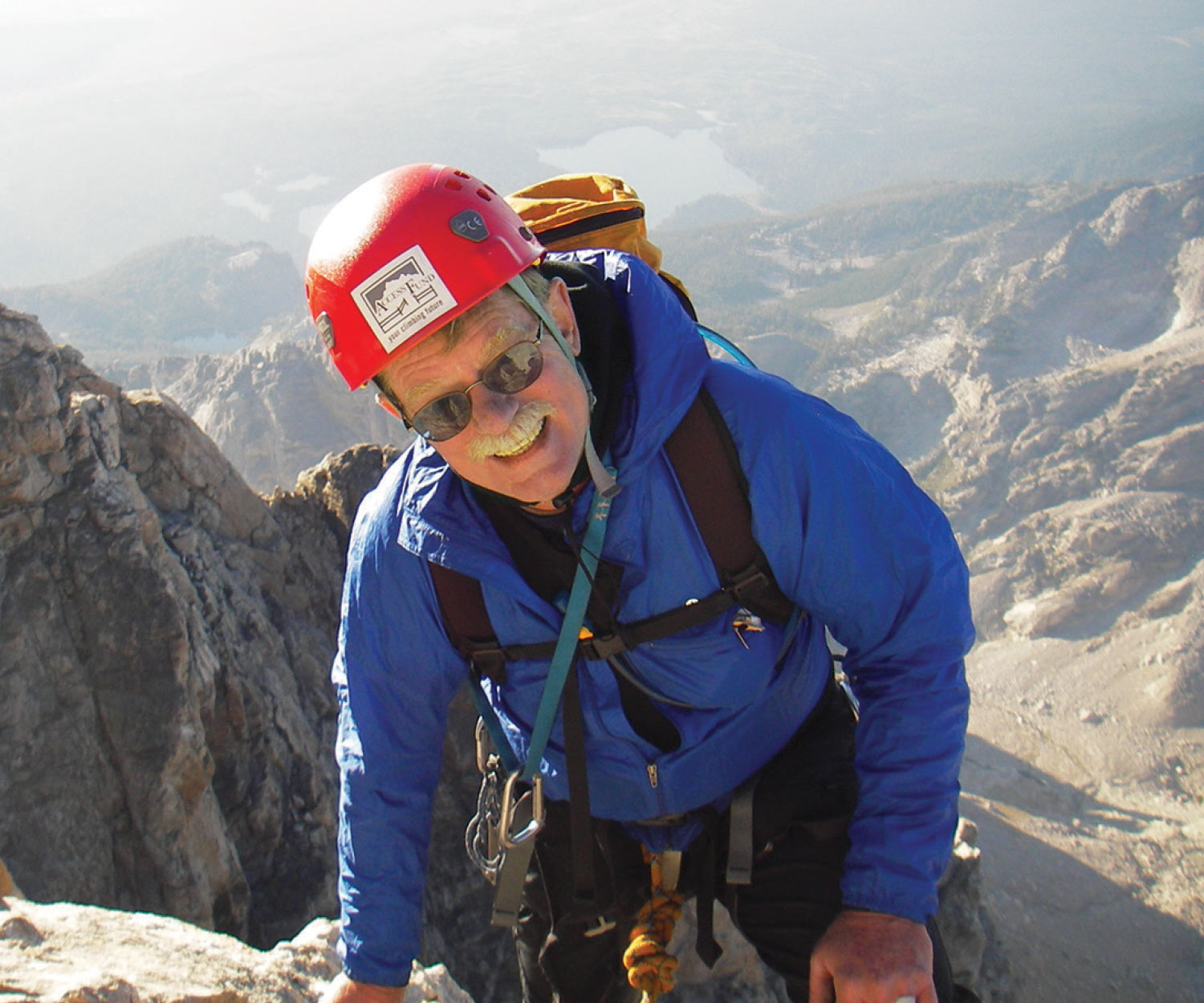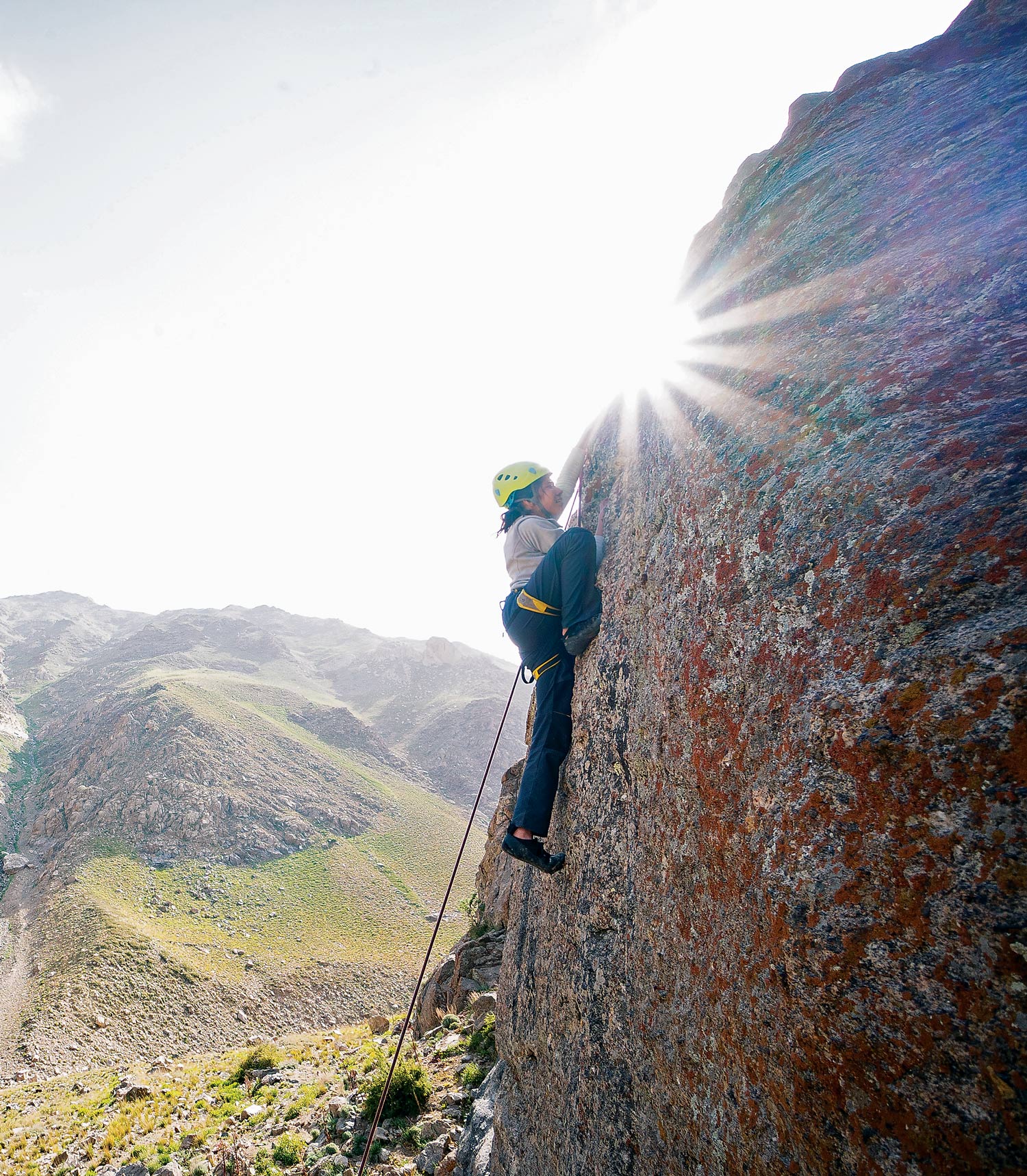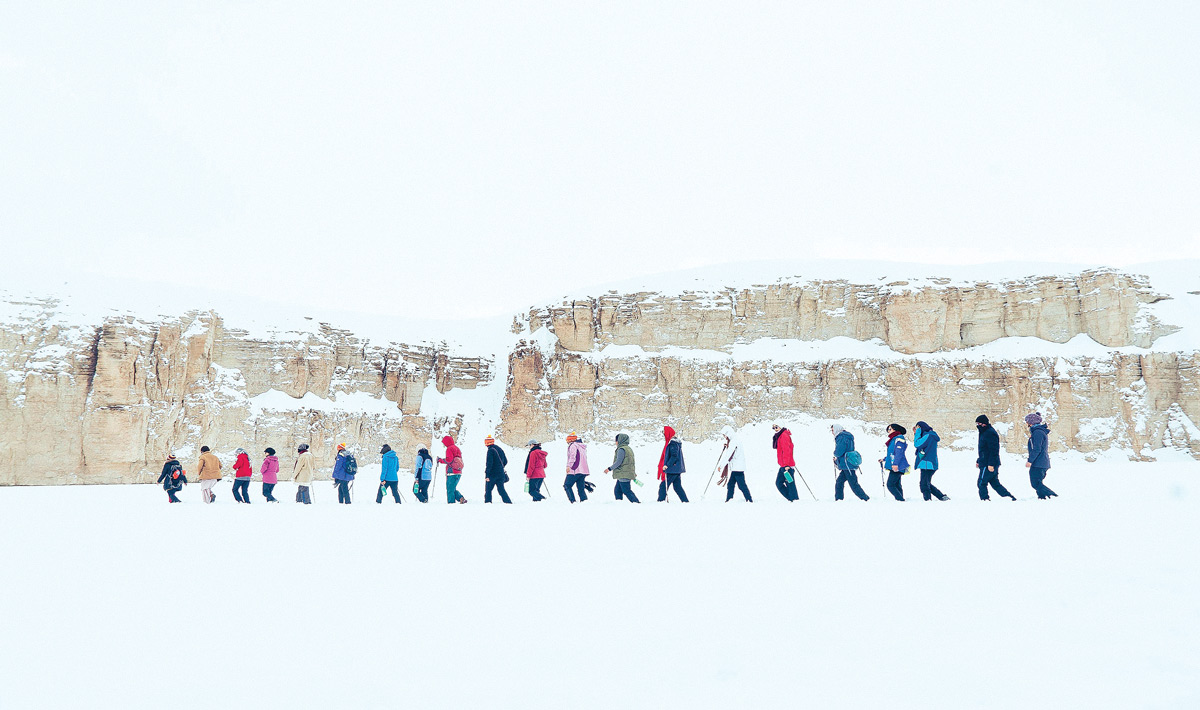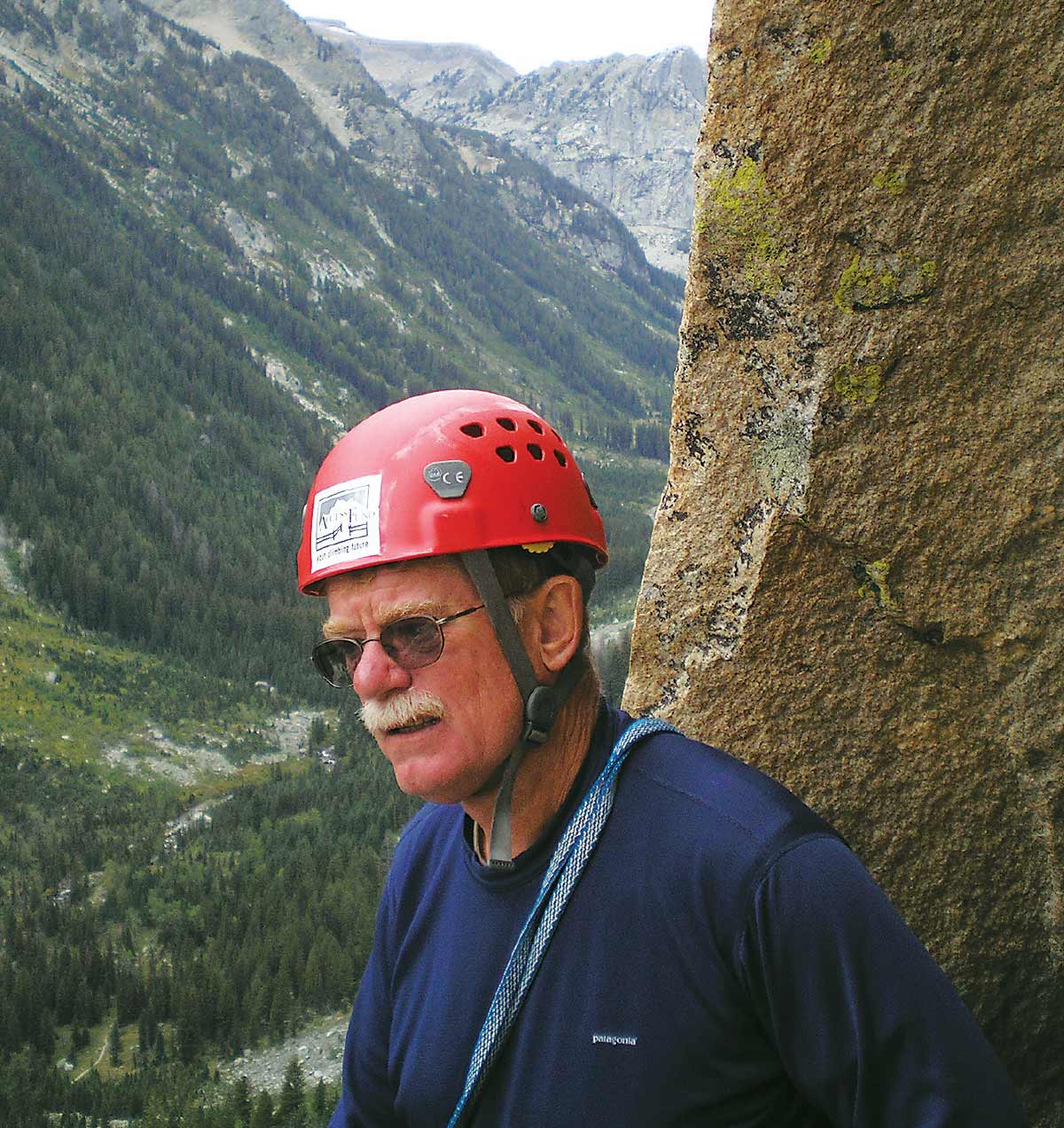
a way out
hough he has had his share of high-risk endeavors, David Thoenen ’68 never expected to be involved in dangerous evacuation efforts from Afghanistan.
Thoenen, a mountaineering and climbing enthusiast who retired from a 35-year career at IBM, signed up in 2017 to volunteer for Ascend. The nonprofit organization offers a mountaineering program designed to build leadership skills for Afghan girls and women ages 15 to 24.
“All sorts of great things were happening in line with the objectives of the program, and we were expanding and bringing in more young women,” says Thoenen, who now serves as chair of Ascend’s board. But in May 2021, the Taliban started to scoop up Afghanistan province by province, and by mid-August they had arrived in Kabul. On Aug. 31, the U.S. completed withdrawal of its troops, ending a 20-year war in Afghanistan.
“We moved from our initial objectives and programming to evacuation and resettlement,” Thoenen says. “Particularly the young women who were leading the programming, but also others associated with the program, were obvious high-risk targets for the Taliban because of their role in pushing for women’s empowerment.

As of this fall, Ascend had evacuated more than 145 people from Afghanistan, including some family members of Ascend participants. Some of the girls and young women were evacuated by charter flight from Mazar-i-Sharif. Others fled over land through Pakistan, coordinated through a whirlwind of networking activity with nongovernmental organizations and Ascend’s contacts on the ground. “We had four women who had to crawl under barbed wire and walked two miles barefoot through the desert,” Thoenen says.
A few were at the Kabul airport when suicide bombers attacked on Aug. 26, killing 183 people. “One of these girls entered the airport covered with blood and wore those same clothes until she reached the resettlement center several days later,” Thoenen says. “Another one of our girls saw a little girl’s leg blown off.”
Thoenen says Ascend’s focus is temporarily shifting to resettling the young women, many of whom ended up in camps in Qatar and the United Arab Emirates.
“We’ve got 18 resettled in Chile and about six or eight in Denmark so far and promises of visas elsewhere,” he says. “That will be our focus through the end of the year, to make sure that everybody gets out of the camps and into an environment that will be nurturing and help them get where they need to go in the longer term.”
Beth Jones ’70, a former assistant secretary of state and ambassador to Kazakhstan, joined Ascend’s board in July and also aided in the nonprofit’s evacuation efforts. She was moved by Ascend and the girls she met online.
“I was really inspired by their enthusiasm for the training and the trips that they’d taken into the mountains and the camaraderie that they clearly enjoyed,” she says. “It was just very affirming that this organization could do this kind of work in Afghanistan with so many girls.”
the taliban in power
For many Americans, the conflict was a forgotten war. In August, it suddenly became visceral again when the Taliban launched a lightning offensive and captured Kabul. Foreigners and Afghans desperately fled from the airport, evoking scenes of Saigon in 1975. Some hope that a more moderate Taliban could emerge, given the dramatic changes in Afghanistan over the past two decades, including education and work opportunities for millions of Afghan girls and women.
However, the notion of a kinder and gentler Taliban may be wishful thinking. The Taliban regime is dominated by hard-liners, and progress on women’s rights has been brutally shut down. The Afghan people — and the wider global community — are caught between a desire to protect hard-won gains and exhaustion from a seeming forever war. — DOMINIC TIERNEY
A professor of political science at Swarthmore, Tierney is a senior fellow at the Foreign Policy Research Institute and author of The Right Way to Lose a War: America in an Age of Unwinnable Conflicts.
Though Jones stepped down from Ascend’s board in October, it was for a notable reason: She rejoined the State Department as coordinator for Afghan relocation efforts, overseeing the department’s resettlement of Afghan individuals in the U.S.
“I hope to be involved in the future,” Jones says. “I feel as though I’m still involved inasmuch as I’m staying very involved in what’s going on in Afghanistan now. That will be good background for later.”
The program is life-changing, says Habiba, an Ascend participant and intern. “Finding Ascend was like magic for me in my life,” says Habiba, 17. She spoke from Humanitarian City in Abu Dhabi, where she was waiting for her newborn brother’s birth certificate to be issued so she could continue on to Denmark. Ascend had arranged for visas for Habiba and her family there.

“At first I was really afraid of rock and ice climbing; I could not trust anyone,” she says. “But I learned how to overcome my fears.”
“It was the best feeling,” she says of climbing. “Your mind is really calm. You’re out of fear.”
Although Ascend does not intend to be in the refugee evacuation and resettlement business forever, Thoenen says the nonprofit will continue helping to move the young women and to notify the local resettlement agencies to pick them up.
— Habiba, an Ascend participant

Ascend has already started working on redesigning the programming, Thoenen says, and is also exploring the idea of delivering it to girls in refugee communities.
“The other option may be to restart our programming, pretty much as it existed in Afghanistan, but in a country where the environment and culture are similar.”
For young athletes like Habiba, the opportunity to find strength in nature is priceless. “You’re just thinking about how to conquer this mountain or conquer this rock,” she says. “All you think about is that.”